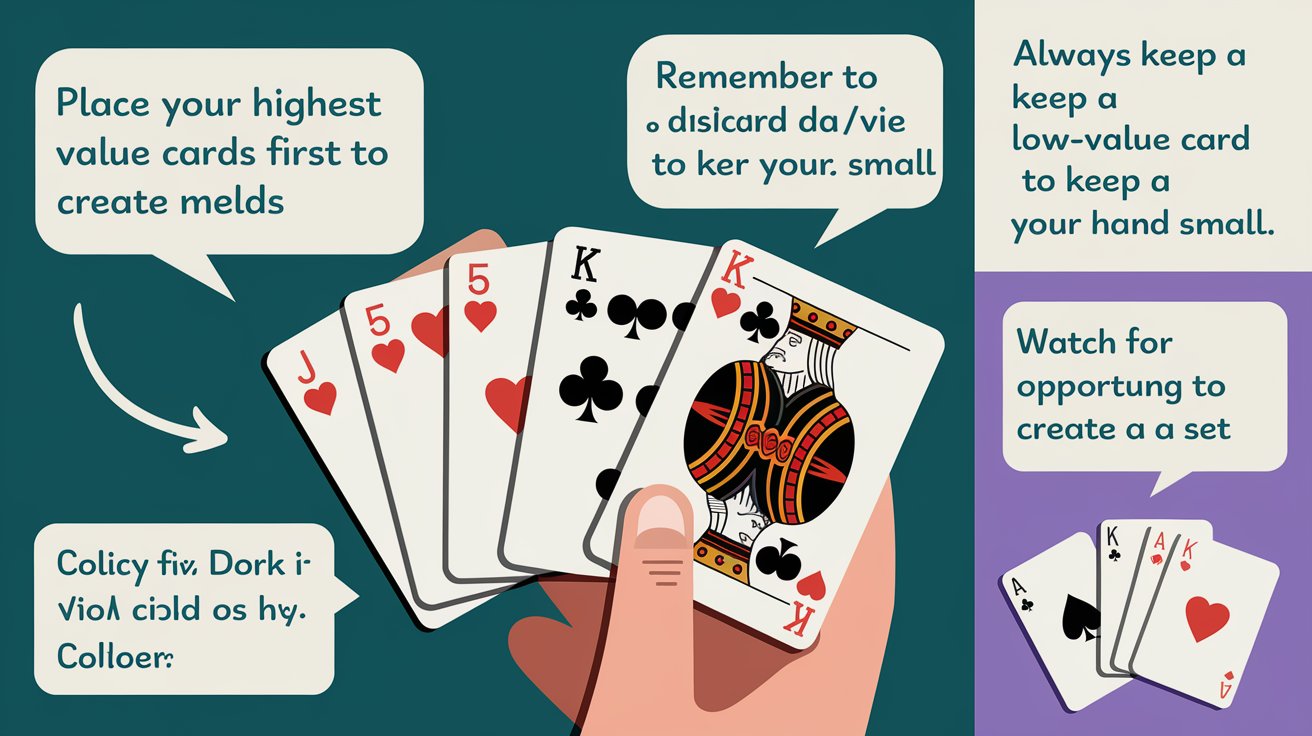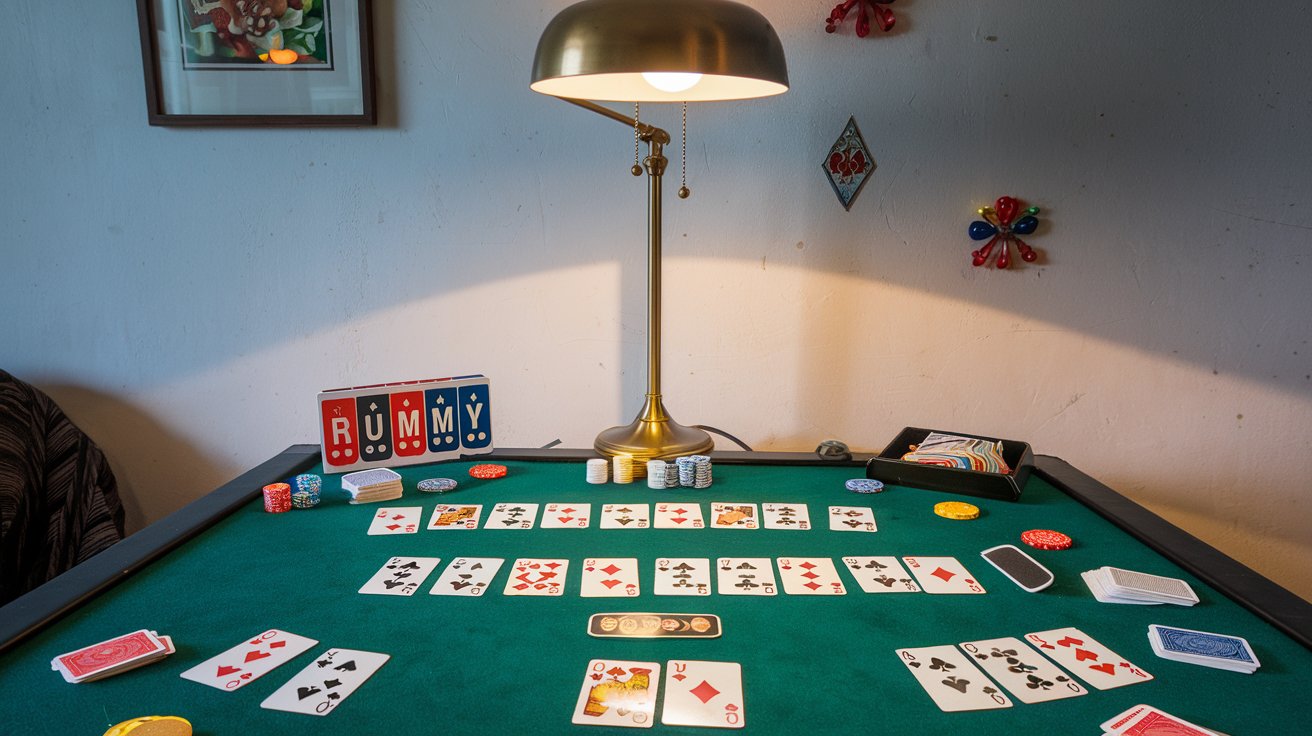Rummy is one of the most popular card games worldwide, cherished for its blend of skill, strategy, and a little luck. Whether you’re playing casually with friends or participating in competitive tournaments, mastering the fundamentals of Rummy is essential to improve your chances of winning. As a beginner, you might find the game a bit overwhelming at first, but with the right tips and strategies, you can quickly become a more skilled and confident player.
In this blog, we’ll break down the best Rummy tips for beginners, offering practical strategies and advice to help you win more games and sharpen your skills. From understanding the rules to mastering essential techniques, this guide will set you on the right path to becoming a Rummy pro.
Understanding the Basics of Rummy

Before we dive into the tips, let’s go over the basic rules of Rummy, so you have a solid foundation. Whether you’re playing Gin Rummy, Indian Rummy, or any other variant, the core principles of the game remain largely the same.
Objective of the Game
The main objective of Rummy is to form melds, which can be either:
- Sets: A collection of three or more cards of the same rank (e.g., 7♠ 7♦ 7♣).
- Runs: A sequence of three or more consecutive cards of the same suit (e.g., 4♠ 5♠ 6♠).
The first player to complete their melds and discard all their cards wins the game.
The Deal
- Rummy is usually played with a 52-card deck, and each player is dealt 7 or 10 cards depending on the variant.
- The remaining cards are placed in the center as the stockpile.
- The top card from the stockpile is flipped over to form the discard pile.
Gameplay
On each turn, players must:
- Draw a card from either the stockpile or the discard pile.
- Form melds (optional, but encouraged).
- Discard one card to end their turn.
The game ends when a player successfully melds all their cards and discards their final card.
Scoring
At the end of the game, the player who goes out (completes all their melds and discards their last card) wins, and the remaining players add up the points of the cards left in their hands. Points are calculated as follows:
- Number cards (2-10): Their face value.
- Face cards (Jack, Queen, King): Worth 10 points.
- Ace: Worth either 1 point or 15 points, depending on the variant.
- Joker/Wild Cards: Typically worth 20 points if still in your hand at the end.
The Best Rummy Tips for Beginners to Win More

Now that you understand the basics, let’s move on to some essential Rummy tips for beginners. These tips will help you refine your strategy, make better decisions, and improve your chances of winning.
1. Focus on Forming Runs First
As a beginner, one of the most important strategies is to prioritize forming runs (sequences of consecutive cards) over sets (groups of cards with the same rank). Runs are generally easier to complete because there are more ways to form sequences than sets.
Tip:
- Look for opportunities to form runs early on. For example, if you have a 4♠, 5♠, and 6♠, focus on completing the run by drawing a 3♠ or 7♠ from the stockpile or discard pile.
- Runs give you more flexibility, and they allow you to adjust as new cards come in.
2. Don’t Hold onto High-Value Cards
As a beginner, it’s easy to get attached to high-value cards like Kings, Queens, and Aces, but they can be a liability if you don’t form melds with them. These cards are worth a significant amount of points if left in your hand when another player goes out.
Tip:
- Discard high-value cards like Kings, Queens, and Jacks as early as possible if you cannot use them in a set or run.
- If you’re stuck with high-value cards, try to use them in a run or set to get them out of your hand.
3. Always Keep an Eye on the Discard Pile
The discard pile is a valuable resource in Rummy. Paying attention to what cards are being discarded can give you useful information about the cards your opponents need and don’t need.
Tip:
- Track what your opponents are discarding to avoid discarding cards that will complete their runs or sets.
- If you notice that your opponent keeps discarding a certain suit or rank, it may mean they are working with those cards, so avoid discarding similar ones.
4. Don’t Be Afraid to Discard Early
One of the biggest mistakes beginners make is holding onto cards for too long in the hope that they’ll eventually form a set or run. However, this can lead to accumulating too many points in the long run.
Tip:
- Discard cards that no longer fit into your strategy. If you’re holding cards that don’t help form runs or sets, get rid of them early to reduce the risk of having high-value cards left in your hand.
- Discarding early helps keep your options open and gives you a better chance of forming melds as new cards come into play.
5. Use Wild Cards and Jokers Wisely
If you’re playing a version of Rummy that includes wild cards or jokers, these can be game-changers. However, many beginners overuse these cards without considering the strategic implications.
Tip:
- Use wild cards and jokers to complete hard-to-form sets or runs. For example, if you’re stuck with a set like 7♠ 7♦, a joker can be used as the third card to complete the set.
- Don’t rely too much on wild cards. Instead, try to build your hand with natural cards first and use wild cards only when necessary.
6. Pay Attention to Your Opponents’ Playstyles

Rummy isn’t just about your hand; it’s also about observing and reacting to your opponents’ moves. By paying attention to how your opponents play, you can adapt your strategy to counter their moves and take advantage of any mistakes they make.
Tip:
- Watch for patterns in their discards. If an opponent is consistently discarding a certain suit, it’s likely they’re not interested in that suit and are building towards something else. Use this information to avoid helping them complete a set or run.
- Notice their hesitation when drawing or discarding. If they seem to hesitate, they might be unsure about what card to play, which could be a sign of weakness.
7. Control the Game’s Pace
Rummy is a game of strategy, and controlling the pace of the game can give you an advantage. If you’re quick and decisive, you may force your opponents to make mistakes or second-guess their moves.
Tip:
- Take your time when drawing or discarding. Don’t rush through the game. Analyze your hand, consider your options, and make the most strategic play possible.
- If you’re ahead, play more cautiously to avoid giving your opponents any opportunities to catch up. If you’re behind, try to play aggressively and make bold moves to catch up.
8. Know When to Go Out
In Rummy, timing your exit from the game is crucial. Rushing to go out too early can cost you valuable points, while waiting too long can allow your opponents to finish their hands first.
Tip:
- Go out when your hand is complete. Once you’ve formed valid sets and runs, don’t hesitate to discard your final card and end the round.
- Don’t wait too long to complete your hand if you’re holding a lot of high-value cards. The longer you wait, the higher the risk of accumulating points.
9. Understand the Importance of Card Management
Card management is one of the key elements of Rummy strategy. If you can manage your hand efficiently, you’ll be able to maximize your chances of forming melds and adapting to changing circumstances.
Tip:
- Organize your hand by suits and ranks. Keeping your cards organized allows you to spot potential runs or sets more easily.
- Track your opponent’s moves and adjust your strategy accordingly. If you notice that they’re working towards a specific suit or rank, avoid discarding cards that will help them complete their hand.
10. Practice, Practice, Practice
Finally, the best way to improve your Rummy skills is through consistent practice. The more you play, the better you’ll become at recognizing patterns, mastering strategies, and improving your decision-making.
Tip:
- Play regularly with friends, family, or online to gain more experience. Each game will help you learn new tricks and improve your skills.
- Reflect on your games. After each game, take a moment to think about what worked and what didn’t. The more you analyze your performance, the faster you’ll improve.
Conclusion
Becoming a skilled Rummy player requires a blend of practice, strategic thinking, and understanding of the game’s mechanics. As a beginner, mastering the basic rules is just the start. To win more often, you’ll need to pay attention to discards, form runs first, manage high-value cards wisely, and observe your opponents’ strategies. The 10 Rummy tips for beginners outlined in this blog will help you develop your skills and improve your gameplay, giving you the confidence to take on any challenge.
So, gather your cards, follow these expert tips, and get ready to enjoy more successful Rummy games. Whether you’re playing for fun or aiming for the top, these strategies will help you win more games and become a Rummy pro in no time!

Zareb Saleh is a journalist at Gulf Today and a ghostwriter for Gameoholic, specializing in gaming, technology, and digital culture. With a keen eye for industry trends, he delivers insightful stories that engage and inform readers.




